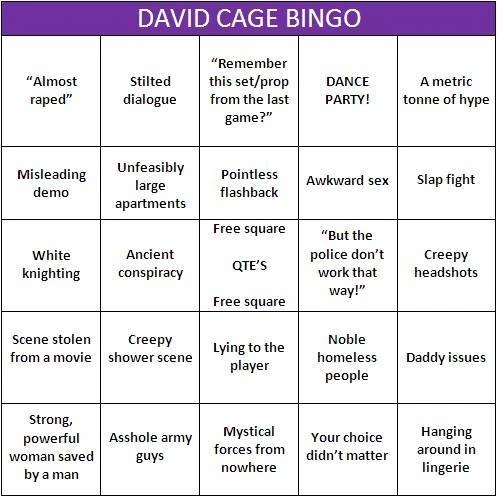At one point in that interview, Cage asks: "Would you ask this question to a film director, or to a writer?" It comes off as defensive, and it suggests a view of art where being an artist means being subject to less criticism; a view where film directors or novelists are not interrogated like he's being interrogated, because they're taken seriously. Cage seems desperate for games to be taken seriously. What he's experiencing in that interview is video games being taken seriously.
Being an artist is the opposite of a free pass. To be taken seriously means to be interrogated. To be taken seriously means that what we do as game developers and writers can and should be put under a microscope. You can't grow up without accepting responsibilities, and video games are long out of their infancy. Being given that responsibility, being subjected to that interrogation, is what allows us to move forward with the medium. You can't iterate, in your own game, without passing judgment on what you did earlier in the process. The medium as a whole can't iterate without that component of judgment.
Maybe Cage has thought about this scene deeply enough. Maybe in its final release,Detroit will stick the landing. But it's hard to reserve judgment when what we've seen suggests it absolutely won't; when Sony chose to show us something that does the opposite of what would be a good treatment of the subject matter. And when, in response to being pressed on the issue, Cage responded in a defensive and tone-deaf way that doesn't inspire confidence either.
